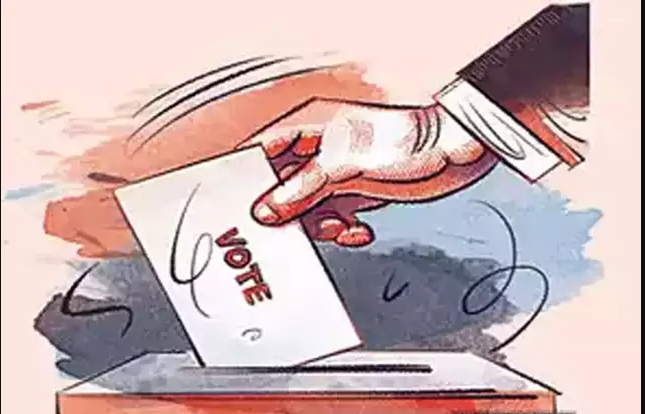Indian General Elections are scheduled to be held in 2024, and include both houses, Lok Sabha (lower house) and Rajya Sabha (upper house). The polls regarding Lok Sabha would initiate sooner than that of Rajya Sabha. These elections are of massive importance and would not only have domestic spillover effects but also regional. Modi’s BJP party is contesting against an alliance of opposition parties. While BJP is trying hard to secure the crown for the third consecutive time, opposition parties are trying equally hard to prevent it. For this purpose, opposition parties have set aside their differences and an alliance of over 28 political parties is forged. This grand alliance is named The Indian National Developmental Inclusive Alliance (INDIA). As symbolic as the name is, INDIA has set for itself a lofty goal because the indicators of surveys are weighing towards the likelihood of BJP-led alliance bloc named National Democratic Alliance’s (NDA) success. India Today CVOTER ‘Mood of the Nation’ survey predicted that in Lok Sabha elections NDA is poised to win 300 plus seats while the opposition alliance, INDIA might reach a moderate sum of around 200 seats. This survey complemented another survey in which the 54 percent respondents believed that BJP would assume the office for the third time while 33 percent inclined towards the success of INDIA. With such gloomy prospects one needs to uncover the leverages that Modi is going to utilize for his re-election campaign.
Since assuming office in 2014, BJP had used ideological tools coupled with securitization of non-political issues to maintain relevance in the public. BJP had controlled the narratives and dominated the political and national discourse to the extent that opposition parties have struggled to hold ground since then. With the exception of selling ultra-nationalist propaganda and polarizing the society on extreme RSS-centric ideological grounds, the Modi government had little to convince the public to vote for them for the second term. And in came certain ‘terrorist attacks’ that shifted the attention towards age-old national security matters, just in time. Pathankot Incident in 2016, followed by Uri Attack in the same year and then finally the Pulwama attack in 2019 occupied much attention towards the end of the first term. Modi’s adventurism in the form of Balakot ‘surgical strike’ further strained the India-Pakistan relations. Pakistan responded to the surgical strike, and two Indian Fighter jets (MiG-21) were shot down. Indian pilot Abhinandan was captured. This tit-for-tat response was totally unexpected by the Indian side that wanted Pakistan to absorb the blow of the strike without any retaliation. Modi dexterously used the events in his favour and three months later, Modi was re-elected as the Prime Minister for the second time with a BJP dominated Lok Sabha.
While Pakistan kept on distancing itself from the Pathankot, Uri and Pulwama attacks, India used this issue to malign Pakistan internationally and Modi gained popularity domestically. Consolidating his power centrally and trickling down his idea of erection of ethnic-state frenzy state by state, Modi passed two controversial laws; Citizenship Amendment Act 2019 and Abrogation of special status of Jammu and Kashmir via article 370. Satya Pal Malik, ex-governor of Indian Illegally Occupied Jammu and Kashmir (IIOJK) in an interview has said that the government of PM Modi had hid the facts of Pulwama attack, and used the incident to malign Pakistan.
Narendra Modi has terrorized Muslims of India. Mob violence against Muslims; vandalization of their houses and businesses are the new normal in India. The Manipur ethnic violence was yet another episode of hostility in Hindu dominated India. BJP government’s silence over Manipur has instigated ethnic violence in other areas of the country. Nuh, Palwal and Gurugram are the new hot centres of persecution of Muslims in India under false pretexts, as is the norm in India.






